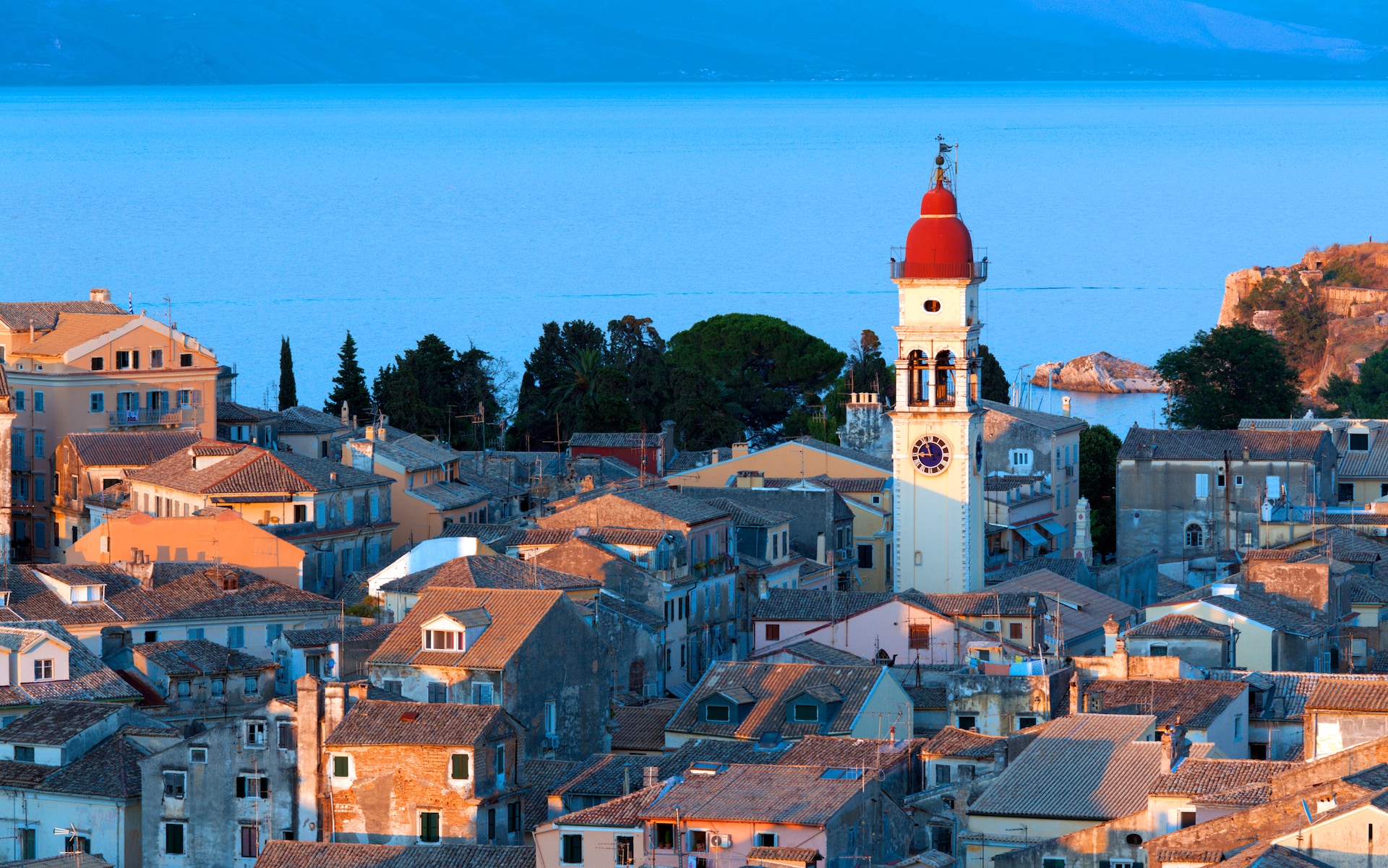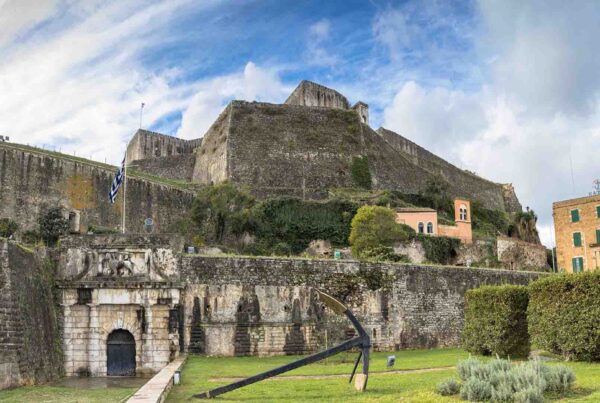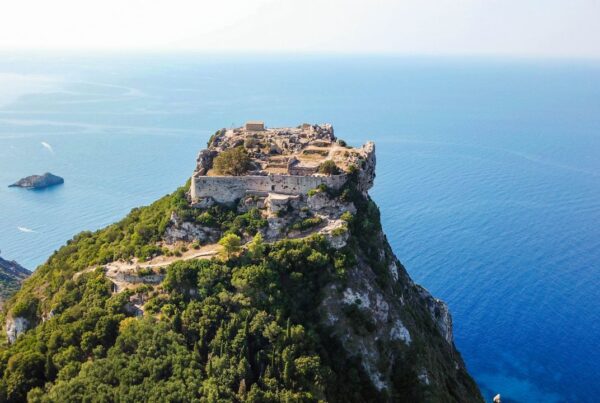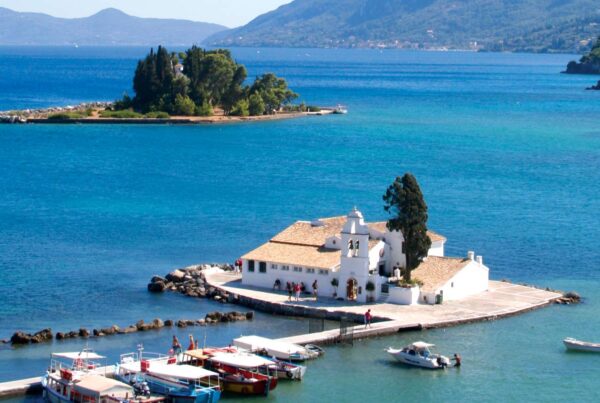This church is the most popular in Corfu since Saint Spyridon is the patron saint of the island. A lot of Corfiots have the name ‘Spiros’ and there is a strong religious relation
Church is Greek Orthodox builded back in the 1580s. It houses the relics of Saint Spyridon and it is located in the old town of Corfu. It is a single-nave basilica and the bell tower is the highest in the Ionian Islands.
Inside the church there is a crypt to the right of the iconostasis where the remains of the Saint are kept in a double sarcophagus. The larger of the two contains the smaller one in its interior and is wooden with silver leaf trim. The smaller sarcophagus is surfaced in red velvet and has a removable bottom to facilitate changing the slippers of the saint.
The presence on Corfu of St Spyridon’s relics is associated with the island’s deliverance from various disasters. These miracles are celebrated by four annual processions along specific routes through the Old Town.
The first procession takes place on Palm Sunday, the day when Corfu was rescued from the plague in 1630. Starting at 11 a.m., the Saint’s relics are paraded through the streets, escorted by all the island’s philharmonic orchestras and following the line of the old town walls from where the Saint drove out the disease
The second procession: (the oldest) , which was established in 1550 when the Saint saved the island from famine, takes place at 9 a.m. on Holy Saturday, at the same time as the procession of the Epitaphios from the Church of St Spyridon, a custom which began during the years of Venetian rule when for reasons of security the Epitaphios procession was forbidden but the St Spyridon procession was permitted. The philharmonic orchestras play the ‘Cande Lacrime’ by Michelli, Faccio’s ‘Hamlet’ and the Funeral March from Beethoven’s ‘Eroica Symphony’
The third procession takes place on the first Sunday in November and marks the town’s second deliverance from the plague in 1673.
The fourth procession is on 11th August in commemoration of the town?s liberation from the Turks in 1716, after a month-long siege.
Church St Spyridon




